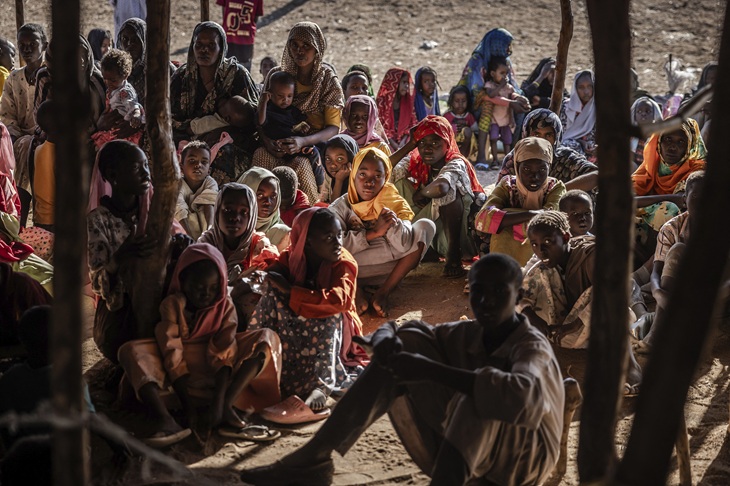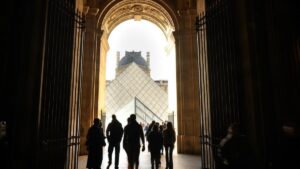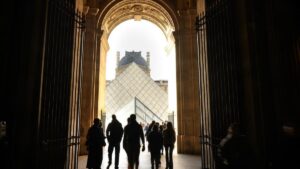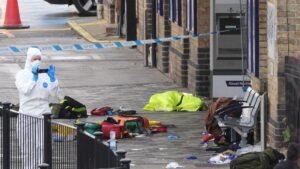
Sudanese refugees and ethnic South Sudanese families who have fled from the war in Sudan gather after crossing the border while waiting to be registered by the authorities at the Joda Border Crossing Point, near Renk, on February 14, 2024.More than 550,000 people have now fled from the war in Sudan to South Sudan since the conflict exploded in April 2023, according to the United Nations. South Sudan, that has itself recently come out of decades of war, was facing a dire humanitarian situation before the war in Sudan erupted and it is feared to not have the resources to host displaced people. The war-torn country of Sudan is currently ravaged by internal fighting between the Sudanese Army and the paramilitary Rapid Support Forces (RSF). (Photo by LUIS TATO / AFP) (Photo by LUIS TATO/AFP via Getty Images)
URGENT UPDATE: Disturbing reports confirm that children in Sudan are facing an escalating humanitarian crisis, yet their suffering remains largely ignored by mainstream media. As violence intensifies in regions like Darfur and Khartoum, the world watches in silence, leaving the most vulnerable populations—especially children—without a voice.
New data reveals that ongoing atrocities perpetrated by the Rapid Support Forces (RSF) are resulting in countless deaths and displacement. Villages are being burned, women assaulted, and children are dying from starvation, with reports emerging daily from Darfur and surrounding areas. The international community must act NOW to address this urgent humanitarian disaster.
Despite the gravity of the situation, coverage of Sudan’s plight remains minimal compared to other global crises. For instance, while events in Gaza dominate international headlines, the humanitarian catastrophe in Sudan is relegated to the background. This selective reporting raises critical questions about the media’s priorities and its responsibility to expose human suffering without bias.
The history of violence in Sudan dates back to the 19th Century, with previous conflicts resulting in over two million lives lost since the country gained independence in 1956. The United Nations has previously categorized the Darfur massacres as genocide, targeting non-Arab and largely non-Muslim populations.
As the situation worsens, children are faced with unimaginable horrors—dying in their mothers’ arms from starvation or being caught in the crossfire of militia gunfire. The silence surrounding these tragic events is a betrayal of our collective human conscience.
Leila Naseri, a noted author and social activist, emphasizes that the world’s failure to act on Sudan’s suffering reflects an unjust media structure that prioritizes political narratives over humanitarian needs. “A child is a child,” she argues, highlighting that human pain knows no borders or religions.
The global media must re-evaluate its approach and acknowledge that the measure of a story’s worth lies in its human impact, not its political alignment. It is time for the international community to demand greater accountability from media outlets and to amplify the voices of those suffering in Sudan.
WHAT’S NEXT: Activists and humanitarian organizations are calling for urgent intervention to alleviate the suffering in Sudan. As reports continue to emerge, the world’s attention is needed more than ever. The question remains: Will we let the plight of Sudan’s children fade into silence, or will we stand with them in their time of need?
This is a developing story. Stay tuned for more updates on the humanitarian crisis in Sudan.





